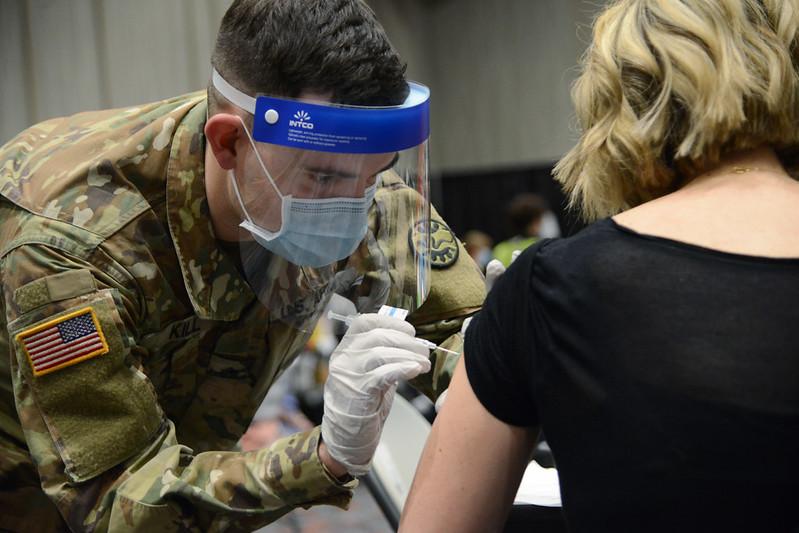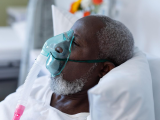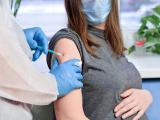At a White House press briefing today, US health officials said cases declined 10% over the past week, but aired worries about virus spread in pockets of the country where COVID-19 vaccination levels are low.
Promising trend buoys fresh vaccination push
Rochelle Walensky, MD, MPH, who directs the Centers for Disease Control and Prevention (CDC), said the 7-day average for new cases is going down, which is a hopeful sign. Hospital admissions and deaths, which are lagging indicators, rose slightly over the past week.
The country reached a key milestone of having 66% of people age 65 and older fully vaccinated, she said. "They have borne the brunt of the pandemic."
However, Walensky said health officials who dive deeper into vaccine rollout data have found that the progress hasn't been uniform across the country, and have uncovered unsettling gaps in coverage. "The virus is an opportunist. There's a potential to do more to protect people," she said.
Some parts of the country are starting to turn down federal vaccine shipments due to a drop in interest in people getting the shot, according to the Associated Press. And polls continue to paint a mixed picture regarding vaccine acceptance. A new Kaiser Family Foundation poll showed that as of mid-March, about half (48%) of non-healthcare essential workers had received at least one dose. The level is lower than for other occupational groups, even though essential workers have been prioritized for vaccination.
Jeff Zients, the White House's COVID-19 coordinator, said more than 52% of US adults have received at least one dose and that health workers are vaccinating about 2.9 million people a day, a level officials expect will moderate or fluctuate in the weeks ahead. He said the next phase of vaccination will focus on four areas. They include continuing current efforts and making vaccination more accessible, such as encouraging vaccination in primary care clinics, as for other vaccines.
He also said there will be a "laser focus" on educating the public on the lifesaving potential of COVID-19 vaccination and the path it offers to resuming normal life. Also, the federal plan will press forward with vaccine equity by opening two new federal immunization sites in Kentucky that have a goal of delivering 7,000 shots a week.
As part of the next vaccination stage, the Biden administration has unveiled the COVID-19 Community Corps, which has a goal of bringing together hundreds of local and national groups in a coalition that will enlist people to help family, friends, and neighbors make vaccine appointments, according to NPR.
NIH progresses with treatment trials
Also at today's briefing, Anthony Fauci, MD, chief medical advisor to President Biden, said multiple trials are underway at the National Institutes of Health (NIH) to study drugs to treat COVID-19.
They include a trial to evaluate seven existing prescription and over-the-counter drugs in the outpatient setting, a trial to test a polyclonal antibody treatment called SAB-185, and a trial to evaluate aviptadil—a synthetic form of human vasoactive intestinal polypeptide—alone or in combination with remdesivir to treat critically ill patients.
Other national developments
- In Michigan, a current US hot spot where a more transmissible variant is spreading, the number of children hospitalized with severe disease is double that of the November surge, the Michigan Health & Hospital Association said, according to NBC News.
- Washington state is experiencing its fourth wave, Governor Jay Inslee said yesterday during a press briefing, according to Axios. Cases are rising due to circulation of variant viruses, mainly B117, which was first identified in the United Kingdom.
- The United States yesterday reported 67,257 new cases, along with 943 more deaths, according to the Johns Hopkins COVID-19 tracker. The nation's overall total climbed to 31,939,830 cases, and 570,463 Americans have died from their infections, according to the Johns Hopkins online dashboard.






















